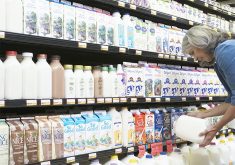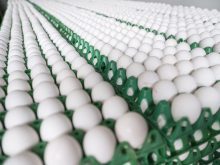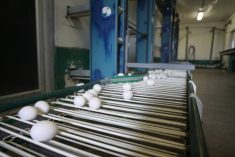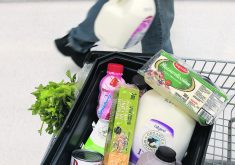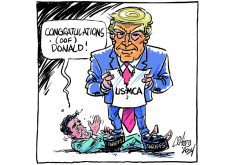With negotiations on a new North American Free Trade Agreement underway, it is appropriate for Canadians to ask: whither supply management?
Supply management is the system in Canada within which products such as dairy (including cheese), chicken, turkey and eggs are produced and sold. It severely restricts the importation of such products from abroad and regulates their production to ensure that it matches demand within the Canadian marketplace.
This ensures that producers receive a reasonable return on their investment and that consumers have access to a steady supply of safe and healthy dairy, chicken, turkey and egg products, at a reasonable price, that takes into account the farmers’ costs of production.
Read Also

Proactive approach best bet with looming catastrophes
The Pan-Canadian Action Plan on African swine fever has been developed to avoid the worst case scenario — a total loss ofmarket access.
Supply management has regulated the production and sale of these products for more than 40 years, and there is little, if any, evidence that the system has made dairy, egg and poultry unaffordable for the average Canadian.
Admittedly, supply management focuses on regulating domestic production, and as such, is not necessarily synonymous with free trade.
Yet most of Canada’s international competitors who produce these products, including the United States, the European Union, Brazil, Australia and New Zealand, also protect their industries to one degree or another.
For example, the United States provides billions of dollars in subsidies to its dairy industry, providing an unfair advantage over other dairy-producing countries.
The European Union, as another example, recently reinstituted price control mechanisms to counteract a dramatic decline in global dairy prices, which came on top of an already generous subsidy to its dairy farmers under the EU’s Common Agricultural Policy.
Even in countries such as Australia and New Zealand, governments have been forced to bail out farmers who risked going bankrupt because of declining world market prices.
The bottom line: there is presently no level playing field that ensures everyone plays by the same rules and prevents protectionist policies from being used to provide some countries with an unfair trade advantage.
The only forum within which a fair and level playing field can be assured is the World Trade Organization, which comprises 164 countries. Until and unless all of the world’s major economies work together at the WTO to provide a clear and enforceable set of rules governing the international trade in dairy and poultry products, Canada’s competitors will continue to seek unfair advantage over our own farmers.
Supply management prevents those competitors from doing so. And to be clear: our supply management system fully complies with all of the current rules set out by the WTO.
In the run-up to NAFTA renegotiations, U.S. President Donald Trump has recently referred to our system of supply management as a “disgrace,” no doubt wishing to “soften up” our trade negotiators. And yet, there is absolutely no reason for Canada to put its supply management system in play during these negotiations.
The U.S. has no intention of eliminating its subsidies to its own farmers and simply wants to gain additional market access in an attempt to deal with its own problem of over-production, to the detriment of Canadian farmers.
Indeed, Canada is already the second largest importer of American milk, importing five times the volume of dairy goods it exports to the United States.
The massive size and clout of the American dairy and poultry industries is such that many Canadian farmers fear an Americanization of our farms and the products they supply.
Despite Prime Minister Justin Trudeau’s past lip service in support of supply management, he has yet to confirm that dismantlement of Canada’s system of supply management will not under any circumstances be on the table for negotiation. I call upon him to now make that commitment to our farmers and to the millions of Canadians who want to continue to enjoy a steady, affordable and healthy supply of Canadian-produced dairy, chicken, turkey and eggs.
Ed Fast is a Conservative MP from Abbotsford, B.C., and a former trade minister.





